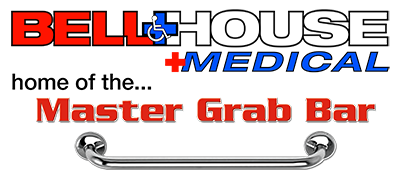Learn More About Perpherial Neuropathy
Tue, May 3rd, 2022
There are many injuries and diseases that can happen as we age. One of the common ones is neuropathy or peripheral neuropathy. Peripheral Neuropathy is defined as damage to the peripheral nervous system. The peripheral nervous system is made up of the nerves that go from your spinal cord to the rest of your body. There are many different types of peripheral neuropathy, and doctors have classified them into four different categories.
- Nerve injury - This can be caused by a physical injury, surgery, or even exposure to certain chemicals or toxins.
- Diabetic neuropathy - Diabetic neuropathy is caused by high blood sugar levels damaging the nerves over time.
- Idiopathic neuropathy - Idiopathic neuropathy means that the cause of the nerve damage is unknown.
- Metabolic neuropathy - Metabolic neuropathy can be caused by different types of vitamin and mineral deficiencies.
Peripheral neuropathy will affect about 25% to 30% of Americans and can be caused by a variety of reasons. There are more than 100 types of peripheral neuropathy with their own set of symptoms and outcomes.
What Are the Symptoms of Peripheral Neuropathy?
The most common symptom of peripheral neuropathy is pain, it can be constant or come and go. It can be mild to severe and can happen gradually or suddenly. Other symptoms include:
- Numbness
- Tingling
- Burning sensation
- Muscle weakness
What Causes Peripheral Neuropathy?
The most common cause of peripheral neuropathy is diabetes. It is estimated that 60-70% of all peripheral neuropathies are caused by diabetes. Other common causes include:
- Vitamin B12 deficiency
- Kidney failure
- Cancer
- Autoimmune diseases
- Exposure to certain toxins or chemicals
- Certain infections
What Helps Peripheral Neuropathy?
In some cases, the cause of peripheral neuropathy is unknown. There is no cure for peripheral neuropathy, but there are ways to make life easier. There are a variety of medical devices that can help with the symptoms of peripheral neuropathy. Some of these devices include:
- Braces or splints - to support weak muscles or joints
- Canes or walkers - to help with balance and stability
- Wheelchairs - for those who have trouble walking
- Specialized shoes - to make walking easier
- Orthotics - to support the feet and relieve pressure on nerves
There are also ways to help manage the symptoms. If you are experiencing peripheral neuropathy, it is important to work with your doctor to develop a treatment plan that works best for you.
What Treatments Help Peripheral Neuropathy?
There may be other treatments or therapies available depending on the cause of your peripheral neuropathy. With proper medical care and some lifestyle modifications, peripheral neuropathy does not have to get in the way of living a normal life.
Some of these treatments include:
- Physical therapy
- Occupational therapy
- Medications
- Medical equipment
What Medical Equipment or Devices Can Help with Peripheral Neuropathy?
- Neurological stimulators for pain management and muscle stimulation
- Orthoses for foot problems, such as orthotic insoles or ankle-foot braces
- Braces to support weak limbs
- Compression socks, which apply gentle pressure to the leg muscles and feet to improve circulation and reduce pain
- A mobility device such as a wheelchair or cane can also be helpful for patients with peripheral neuropathy
Surgery is sometimes used to treat peripheral neuropathy if it is caused by compression of the nerve by bone spurs or other tissue. If you are experiencing symptoms of peripheral neuropathy, it is important to speak with your doctor right away in order to get a proper diagnosis and receive treatment as soon as possible.
With early diagnosis and intervention, peripheral neuropathy can be managed effectively so that you can live a full and comfortable life despite this condition.
Bell House Medical is here to help make your home safer and maintain your independence. If you have mobility difficulties, decreased balance or need your home modified so you can get around more independently, we have many solutions to fit your needs give us a call 302-644-4404.
Sources: hopkinsmedicine.org, my.clevelandclinic.org






